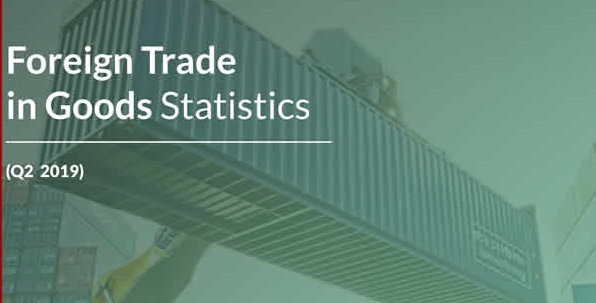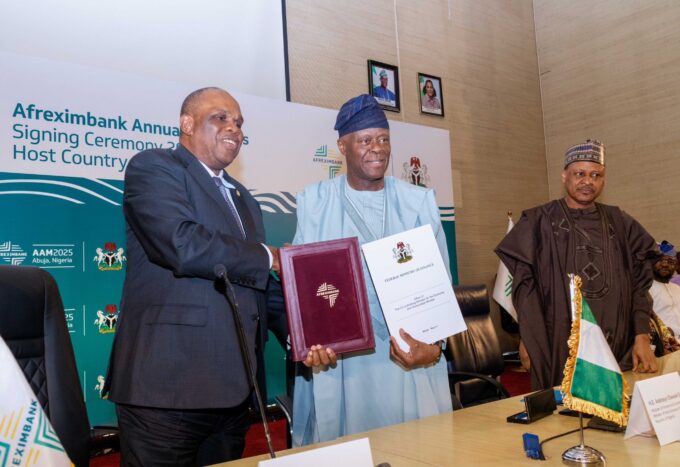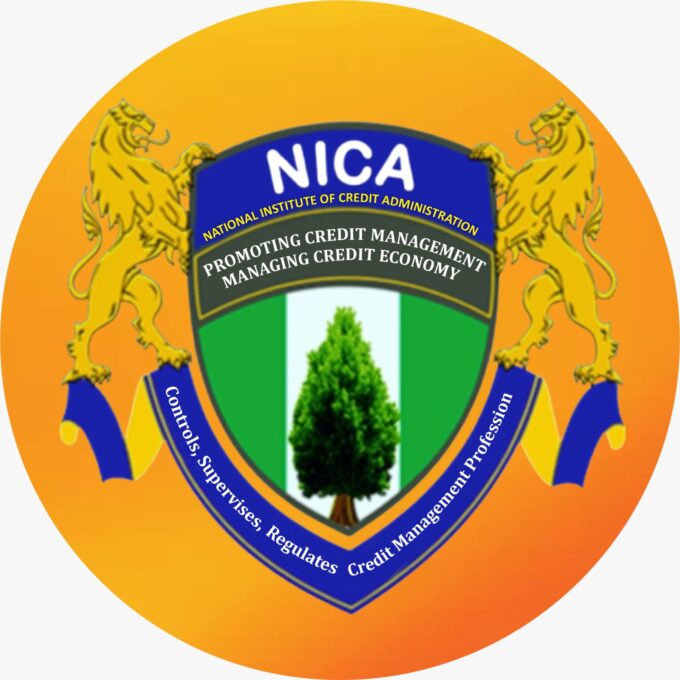September 12, 2019/NBS
Highlights:
Total trade:
- In Q2 2019, total trade grew by 4.42% compared to Q1 2019, and by 24.16% relative to Q2 2018. Combined with the Q1 2019 performance, the value of total trade as at half year 2019 was 15.43% higher than for the same period in 2018.
Imports:
- In Q2 2019, the value of total imports rose by 8.20% compared to Q1 2019, and by 65.21% over the corresponding quarter of 2018. The value of imports for the first half of 2019 rose 43.63% over the corresponding period in 2018.
- The value of imported Agricultural products was 5.79% higher in Q2, 2019 than Q1 2019, and 11.33% higher than Q2, 2018.
- The value of Raw material imports grew 4.97% over the value recorded in Q1 2019 and 32.69% over the value recorded in Q2 2018.
- The value of Solid minerals imports was 63.46% higher than in Q1, 2019 and 68.34% higher than the value recorded in Q2 2018.
- The value of Energy goods imports was 74.65% lower than in Q1, 2019, and 91.70% lower than the corresponding quarter of 2018.
- The value of imported Manufactured goods decreased by 10.86% in Q2 2019 against the value recorded in Q1 2019 but rose by 110.21% against its value in Q2 2018.
- The value of Other oil products imported rose by 162.59% compared to Q1 2019 and 21.87% when compared to Q2 2018.
Exports:
- The value of total exports in Q2 2019 increased by 1.34% against the level recorded in Q1, 2019 and 2.06% when compared with its value in Q2, 2018. The value of exports for the first half of 2019 fell by 1% compared to the first half of 2018.
- The value of Agricultural exports was 14.66% lower than in Q1 2019 and 14.48% lower than in Q2 2018.
- The value of Raw material exports was 14.52% lower than the value in Q1 2019 and 1.71% lower than in Q2 2018.
- The value of Solid minerals exports declined by 15.53% compared to Q1 2019 and 62.27% against the corresponding quarter in 2018.
- The exports of Energy goods dropped by 12.31% in value compared to Q1 2019 and 15.15% when compared with Q2 2018.
- The value of Manufactured exports decreased by 77.05% when compared with the value recorded in Q1 2019 but increased by 51.75% compared to the corresponding quarter in 2018.
- The value of Crude oil exports in Q2 2019 was 16.52% higher than in Q1 2019 and 4.40% higher than in Q2 2018.
- The value of Other oil products exports decreased by 21.69% compared to Q1 2019 and 15.92% against Q2 2018.
Major Export Trading Partners and their percentage share in Q2 2019 Export Trade
| India | 17.27% |
| Spain | 11.97% |
| Netherlands | 10.41% |
| United States | 7.68% |
| France | 6.09% |
Major Import Trading Partners and their percentage share in Q2 2019 Import Trade
| China | 25.47% |
| United States | 10.53% |
| Netherlands | 9.33% |
| India | 7.48% |
| Belgium | 6.21% |
Major Traded Agricultural Products
- Sesamum seeds, whether or not broken
- Cashew nuts
- Good fermented Nigerian Cocoa Beans
- Superior quality raw cocoa beans
- Other Frozen shrimps and prawns
- Ginger.
- Natural Cocoa butter
Overview
In Q2,2019, the value of Nigeria’s total trade stood at N8,603.4 billion comprising 46.6% imports (N4,007.4billion) and 53.4% exports (N4,596.2billion). The value of total trade in Q2, 2019 was higher by 4.4% when compared to Q1 2019, but 24.2% higher when compared with Q2, 2018. The trade balance remained favourable, valued at N588.8billion. Combined with the Q1 2019 performance, however, the trade balance declined by 63.14% relative to the same period in 2018, while the value of total trade was 15.43% higher at half year 2019 than for the same period in 2018. This performance was largely as a result of stronger growth in the value of imports far outpacing growth in the value of exports which rose only marginally. The value of total exports has remained relatively stable since 2018, but the value of imports has maintained its steady rise, hence the decline in trade balance since mid-2018.
Highlights:
Total trade:
- In Q2 2019, total trade grew by 4.42% compared to Q1 2019, and by 24.16% relative to Q2 2018. Combined with the Q1 2019 performance, the value of total trade as at half year 2019 was 15.43% higher than for the same period in 2018.
Imports:
- In Q2 2019, the value of total imports rose by 8.20% compared to Q1 2019, and by 65.21% over the corresponding quarter of 2018. The value of imports for the first half of 2019 rose 43.63% over the corresponding period in 2018.
- The value of imported Agricultural products was 5.79% higher in Q2, 2019 than Q1 2019, and 11.33% higher than Q2, 2018.
- The value of Raw material imports grew 4.97% over the value recorded in Q1 2019 and 32.69% over the value recorded in Q2 2018.
- The value of Solid minerals imports was 63.46% higher than in Q1, 2019 and 68.34% higher than the value recorded in Q2 2018.
- The value of Energy goods imports was 74.65% lower than in Q1, 2019, and 91.70% lower than the corresponding quarter of 2018.
- The value of imported Manufactured goods decreased by 10.86% in Q2 2019 against the value recorded in Q1 2019 but rose by 110.21% against its value in Q2 2018.
- The value of Other oil products imported rose by 162.59% compared to Q1 2019 and 21.87% when compared to Q2 2018.
Exports:
- The value of total exports in Q2 2019 increased by 1.34% against the level recorded in Q1, 2019 and 2.06% when compared with its value in Q2, 2018. The value of exports for the first half of 2019 fell by 1% compared to the first half of 2018.
- The value of Agricultural exports was 14.66% lower than in Q1 2019 and 14.48% lower than in Q2 2018.
- The value of Raw material exports was 14.52% lower than the value in Q1 2019 and 1.71% lower than in Q2 2018.
- The value of Solid minerals exports declined by 15.53% compared to Q1 2019 and 62.27% against the corresponding quarter in 2018.
- The exports of Energy goods dropped by 12.31% in value compared to Q1 2019 and 15.15% when compared with Q2 2018.
- The value of Manufactured exports decreased by 77.05% when compared with the value recorded in Q1 2019 but increased by 51.75% compared to the corresponding quarter in 2018.
- The value of Crude oil exports in Q2 2019 was 16.52% higher than in Q1 2019 and 4.40% higher than in Q2 2018.
- The value of Other oil products exports decreased by 21.69% compared to Q1 2019 and 15.92% against Q2 2018.
Major Export Trading Partners and their percentage share in Q2 2019 Export Trade
| India | 17.27% |
| Spain | 11.97% |
| Netherlands | 10.41% |
| United States | 7.68% |
| France | 6.09% |
Major Import Trading Partners and their percentage share in Q2 2019 Import Trade
| China | 25.47% |
| United States | 10.53% |
| Netherlands | 9.33% |
| India | 7.48% |
| Belgium | 6.21% |
Major Traded Agricultural Products
- Sesamum seeds, whether or not broken
- Cashew nuts
- Good fermented Nigerian Cocoa Beans
- Superior quality raw cocoa beans
- Other Frozen shrimps and prawns
- Ginger.
- Natural Cocoa butter
Overview
In Q2,2019, the value of Nigeria’s total trade stood at N8,603.4 billion comprising 46.6% imports (N4,007.4billion) and 53.4% exports (N4,596.2billion). The value of total trade in Q2, 2019 was higher by 4.4% when compared to Q1 2019, but 24.2% higher when compared with Q2, 2018. The trade balance remained favourable, valued at N588.8billion. Combined with the Q1 2019 performance, however, the trade balance declined by 63.14% relative to the same period in 2018, while the value of total trade was 15.43% higher at half year 2019 than for the same period in 2018. This performance was largely as a result of stronger growth in the value of imports far outpacing growth in the value of exports which rose only marginally. The value of total exports has remained relatively stable since 2018, but the value of imports has maintained its steady rise, hence the decline in trade balance since mid-2018.

The slower growth in exports could be attributed to a combination of slower growth in the value of crude oil exports occurring at the same time as a decline in the value of non-crude oil exports. In Q2, 2019 crude oil remained the major export as it accounted for 85.6% (N3,934.6 billion) of total exports while non-crude oil exports contributed 14.37% (N661.6billion). On a year on year basis, the value of crude oil exports was 4.4% higher in Q2 2019 than in Q2 2018, and 16.52% higher than in Q1 2019.
At half year 2019, the value of crude oil exports declined only slightly by -0.5% relative to half year 2018. On the other hand, the value of non-crude oil exports declined by almost 3% as at half year 2019, by 10% relative to Q2 2018 and by 43% relative to Q1 2019. Nevertheless, excluding all oil-related commodity exports, the value of non-oil exports rose by 4.1% in Q2 2019 relative to Q2 2018, and by almost 5% at half year 2019 relative to the same period in 2018.

Imports Classified by Standard International Trade Classification and country of Origin
Nigeria’s imports stood at N4,007.4 billion in Q2, 2019 representing an increase of 8.20% over the value in Q1, 2019. This also represented 65.21% over the corresponding quarter of 2018. The major product imported during the quarter was Machinery and transport equipment valued at N1, 674.4 billion, or 41.78% of total imports. Other major imports during the quarter were mineral fuels (N909.7 billion or 22.79% of total imports) and Chemical & related products (N428.2 billion or 10.7%).

During the quarter, Nigeria imported goods mainly from Asia, valued at N1,777.8 billion or 44.36% of total imports. Other imports originated from Europe (valued at N1,422.9 billion or 35.51%), Americas (N544.3billion or 13.58%), Africa (N241.7 billion or 6.03%) and Oceania (N20.7billion or 0.52%). Within Africa, import trade with ECOWAS was valued at N146.1 billion, or 60% of total imports from Africa.
By country of origin, Nigeria imported goods worth N1,020.6 billion (or 25.47% of total imports) from China, and N422.1 billion worth of goods (or 10.53%) from the United States. Other major trading partners were the Netherlands, India and Belgium which respectively accounted for imports valued at N374.1 billion (or 9.33%), N299.8 billion (or 7.48%) and N248.9 billion (or 6.21%).

Exports Classified by Standard International Trade Classification and Country of Destination
The value of total exports in Q2, 2019 stood at N4,596.2 indicating an increase of 1.34% against the level recorded in Q1, 2019, and 2.06% when compared with its value in Q2, 2018. Crude oil exports contributed N3,934.59 billion (or 85.6%) while Non-crude oil export stood at N661.6 billion.
By section, mineral products accounted for the bulk of the total value of exports (N4,385.3billion or 95.4%). This was followed by Vehicles worth N68.6 billion (or 1.49%) and Vegetable products worth N49.8billion (or 1.1%). Nigeria exported mostly to Europe (N2,105.4 billion or 45.8%), followed by Asia (N1,270.8billion or 27.6%), America (N638.5billion or 13.9%), Africa (N508.95billion or 11%) and Oceania (N72.5billion or 1.58%). Within the continent of Africa, ECOWAS accounted for N200.3billion (or about 40% of total Africa exports).
By country of destination, Nigeria’s exports went mainly to India, Spain, the Netherlands, the United States and France valued at N793.9 billion (or 17.27%), N550.1 billion (or 11.97%), N478.32billion (or 10.41%), N353.17 billion (or 7.68%) and N279.9 billion (or 6.09%) respectively.

Trade Classified by Sectors Q2 2019
Agricultural Goods Sector
During the quarter, total trade in Agricultural goods stood at N323.4 billion out of which exported agricultural goods accounted for N73.5billion or 22.7%. The value of agricultural exports was 14.66% lower than in Q1, 2019 and 14.48% lower than in Q2 2018.
By economic region, agricultural goods were exported mainly to Asia and Europe, valued at N49.2 billion and N18.0 billion respectively. The dominant agricultural products were sesamum seeds mainly exported to Japan (N5.9billion), Turkey (N4.8billion) and China (N2.8billion). Other major drivers of agricultural exports were cashew nuts in shell mainly exported to Vietnam (N12.7 billion) and India (N4.2billion), as well as good fermented Nigerian cocoa beans exported to the Netherlands and Germany, valued at N3.3billion and N2.7billion respectively.
In terms of imports, agricultural products accounted for N249.95 billion or 77.3% of total agricultural trade in Q2, 2019. The major product was Durum wheat (not in seeds) imported mainly from the United States and Canada, worth N30.7 billion and N12.6billion respectively. Other drivers were Durum wheat (in seeds) also imported from the United States and Canada respectively valued at N36.7billion and N8.7billion, as well as Mackerel imported from Japan and the Netherlands, valued at N8.5 billion and N3.1billion respectively.

Solid Minerals Sector
The value of trade in solid mineral goods stood at N36.7billion in Q2, 2019. Solid mineral exports amounted to N7.6billion while imported solid mineral goods contributed N29.1billion. The major products exported in this sector were Other cement which was exported to Niger Republic and Togo, respectively valued at N2.9billion and N1.3billion. This was followed by Lead ores and concentrates exported to China and valued at N1.8billion. In terms of imports, leaded gasoline sludges and leaded anti-knock compound sludges worth N6.95billion were imported from Saudi Arabia, Plasters of Calcined gypsum valued at N4.1billion was imported from Turkey and Crude salt worth N3.4billion was imported from Brazil.
Manufactured Goods Sector
The value of manufactured goods traded in Q2, 2019 stood at N2,577.9 billion. The export component stood at N106.1 billion while imported manufactured goods were valued at N2,471.8 billion. During the quarter, Vessels and other floating structures valued at N27billion, N12.6billion and N3.3billion were exported to Cameroon, Argentina, and Namibia respectively. Other floating structures worth N7.7billion were also exported to the United Arab Emirates. These were largely re-exports. In addition, Other Cigars, Cheroots, cigarillos and Cigarettes of tobacco worth N2.0 billion were exported to Niger Republic.
In terms of imports, used Vehicles worth N114.9billion, N6.3billion and N4.1billion were imported from the United States, Italy and Belgium respectively while Motorcycles worth N81.9billion and N29.9billion were imported from India and China respectively. Others were Machine for reception imported from China and Sweden valued at N35.4billion and N11.5billion, and Refrigerated vessels imported from the United Kingdom worth N48.7billion.
Raw Material Goods Sector
The value of total trade in Raw materials stood at N377.6billion. The export component stood at N31.1billion while import stood at N346.5billion. While the value of Raw material exports in Q2 2019 was 14.52% lower than the value in Q1,2019 and 1.71% lower than in Q2 2018, the value of imports grew 4.97% more than the value recorded in Q1, 2019 and 32.69% more than the value recorded in Q2 2018. The major raw materials exported during the quarter were: Urea, exported to Benin Republic, Brazil and South Africa valued at N5.8billion, N2.3billion and N2.1billion. Similarly, Leather further prepared after tanning/crusting valued at N4.2 billion and N1.7billion was exported mainly to Spain and Italy while Technically-specified natural rubber worth N1.1billion was exported to Spain.
In terms of imports, cane sugar worth N37.9billion was imported from Brazil while Preparations for Infant use worth N14.7 billion was imported from China. Other products such as Milk preparations containing vegetable fats/oils were imported from Ireland, Australia, Malaysia and France and valued at N7.3billion, N2.5billion, N2.5billion and N1.2billion respectively.
Trade Intensity in Q2 2019
Export Intensity Index with Five Major Trading Partners
In Q2, 2019, Nigeria had a lower export intensity with India in April (0.8) but this improved in May and June with export intensities of 1.2 and 1.23. Similarly, the bilateral trade flow with Spain and the Netherlands was strong all through April, May and June and this was reflected by the high monthly export intensities of 3.0, 5.9 and 6.1 for Spain and 2.0, 2.9 and 2.8 for the Netherlands. On the other hand, export trade with the United States was relatively weaker with the index recording 0.7, 0.32 and 0.33 in April, May and June. Trade with France registered fairly strongly in April and May (2.3 and 1.0) but weakened slightly in June (0.9).

Import Intensity Index with five Major Trading Partners
For the months of April, May and June, Nigeria’s trade with China was fairly strong with import intensities of 1.7, 1.3 and 1.9. Import intensity was strong in two out of the three months for the United States of America (1.0, 0.9 and 1.1) and Belgium (2.3, 3.2 and 0.5) but less than 1 for India throughout the quarter. On the other hand, import intensity with Netherlands was strong throughout the quarter, registering at 4.2 in April, 6.5 in May and 1.4 in June.

Trade by Mode of Transport
In the second quarter of 2019, Nigeria’s major mode of transporting goods to partner countries was by water, accounting for N4,551.8 billion or 99.0% of total export. Goods exported by road were valued at N12.3 billion while goods exported by air amounted to N18.3 billion. Rail transport contributed N4.6 billion. For imports, the major mode of transport was also by water, accounting for N3762.8billion or 93.9%. Imports by road accounted for N26.6billion or 0.7% while imports by air accounted for N217.9billion or 5.4%.
Trade by Ports and Custom Posts
By port of operation, the bulk of export transactions was conducted through Apapa port, valued at N4,413.6 billion or 96%, followed by Lilypond port which recorded N73.2billion. In terms of imports, Apapa Port also recorded the highest transactions valued at N1,845.7 billion or 46.1%. This was followed by Tin Can Island (N788.8billion or 19.7%) and Port-Harcourt-3 (N444.3billion or 11.1%).














